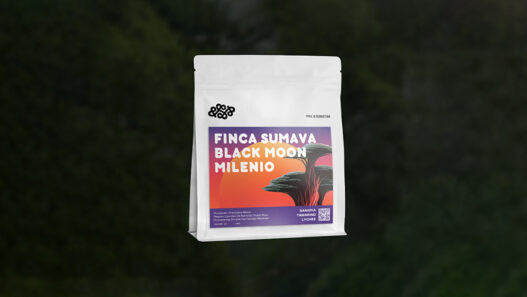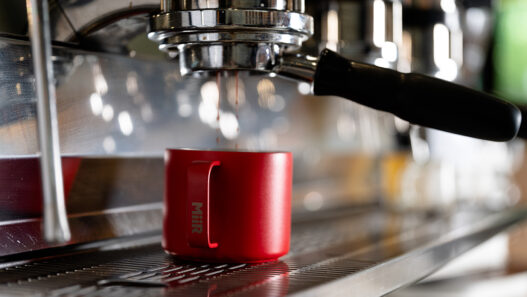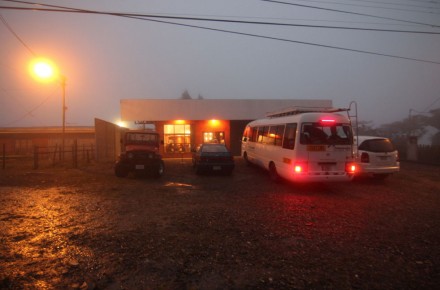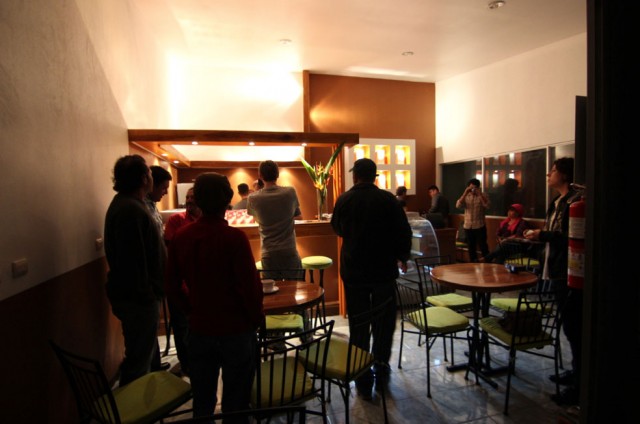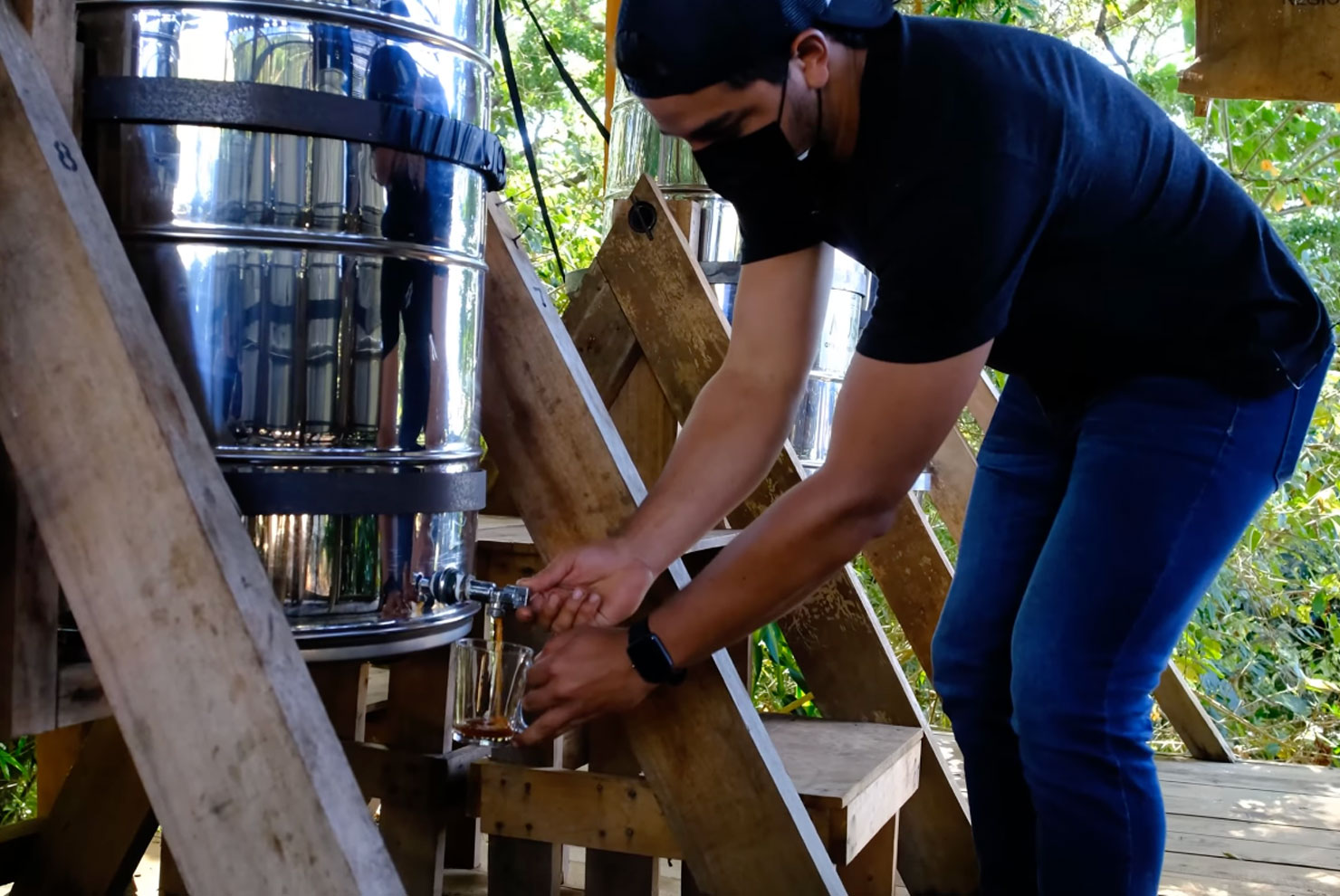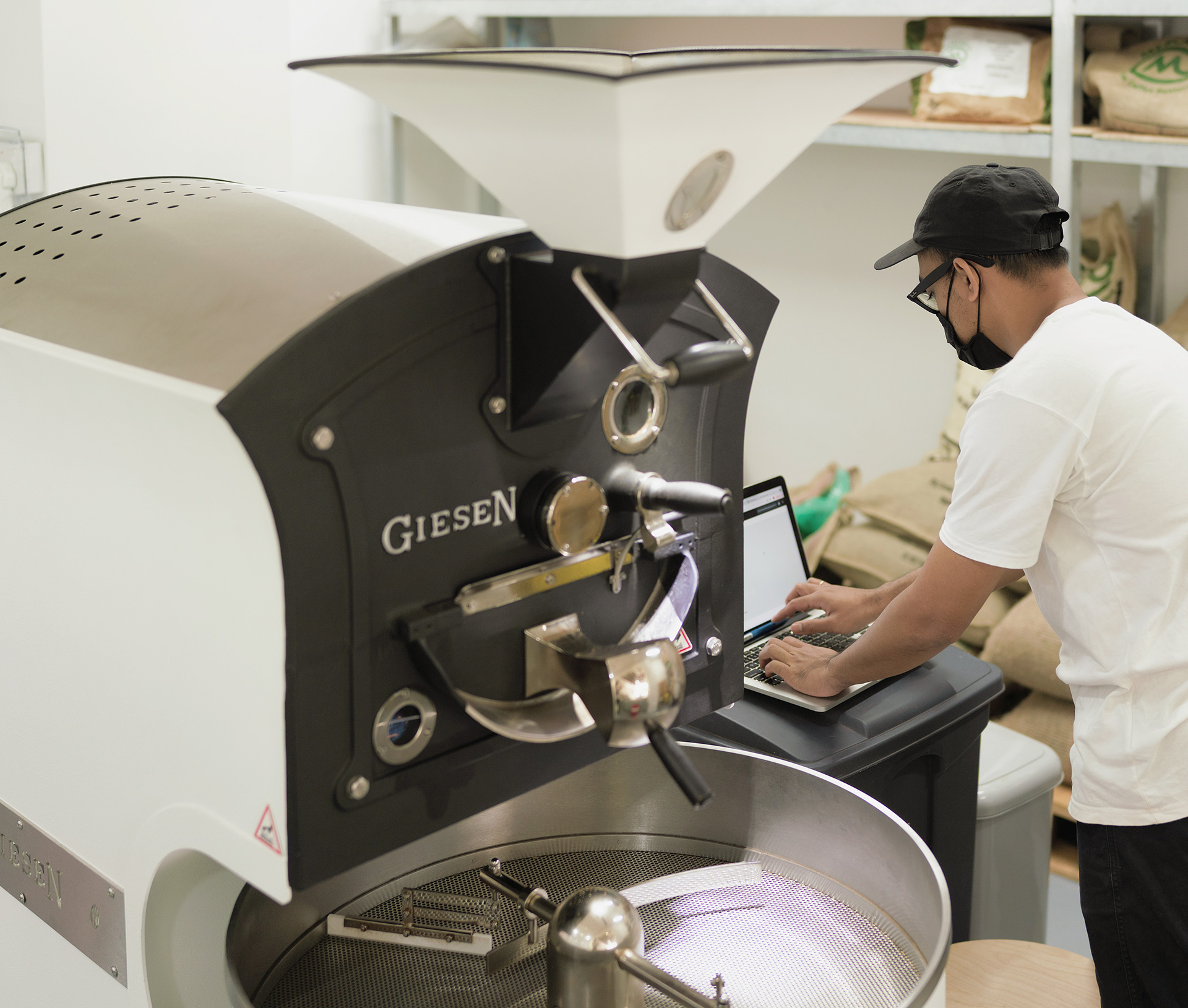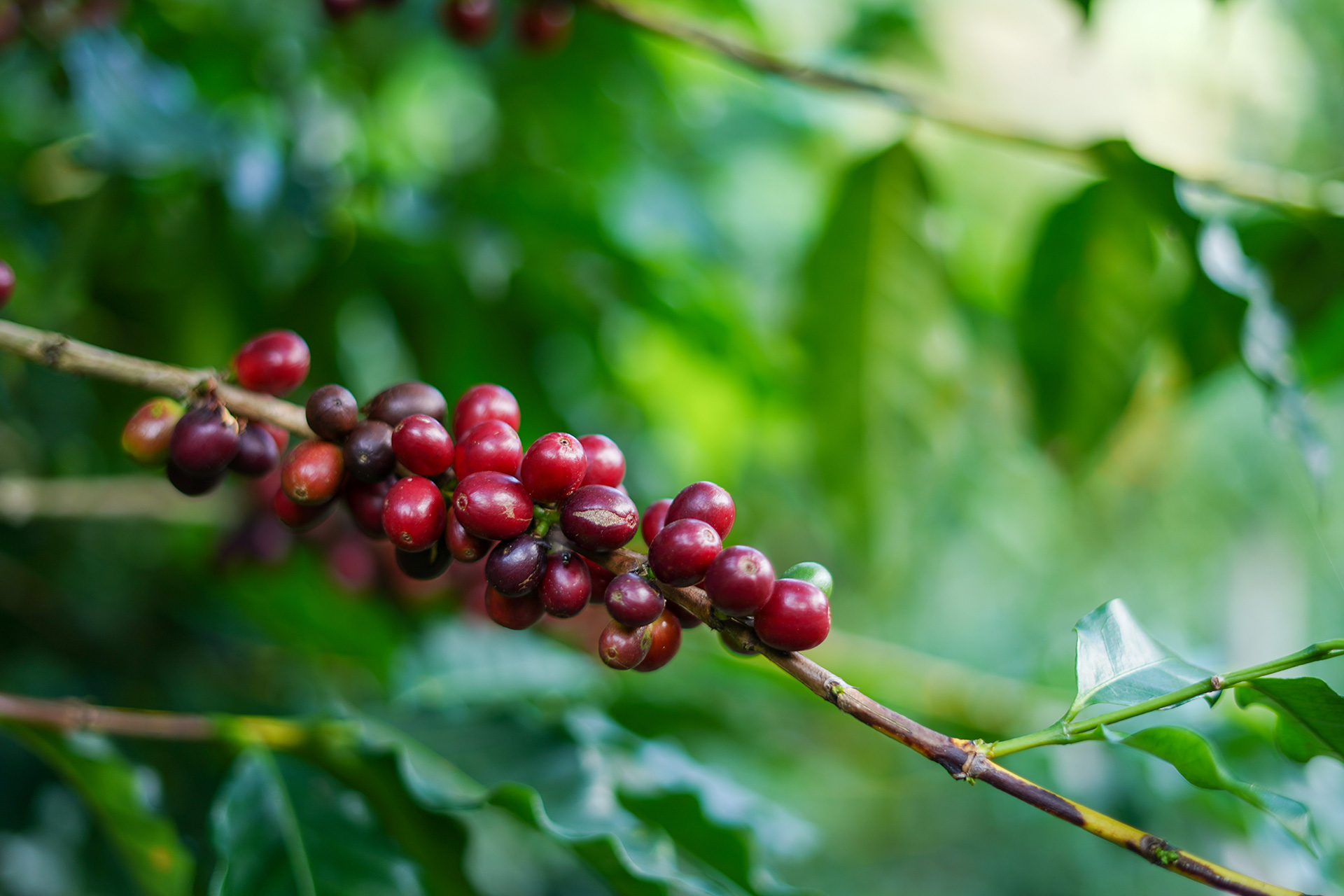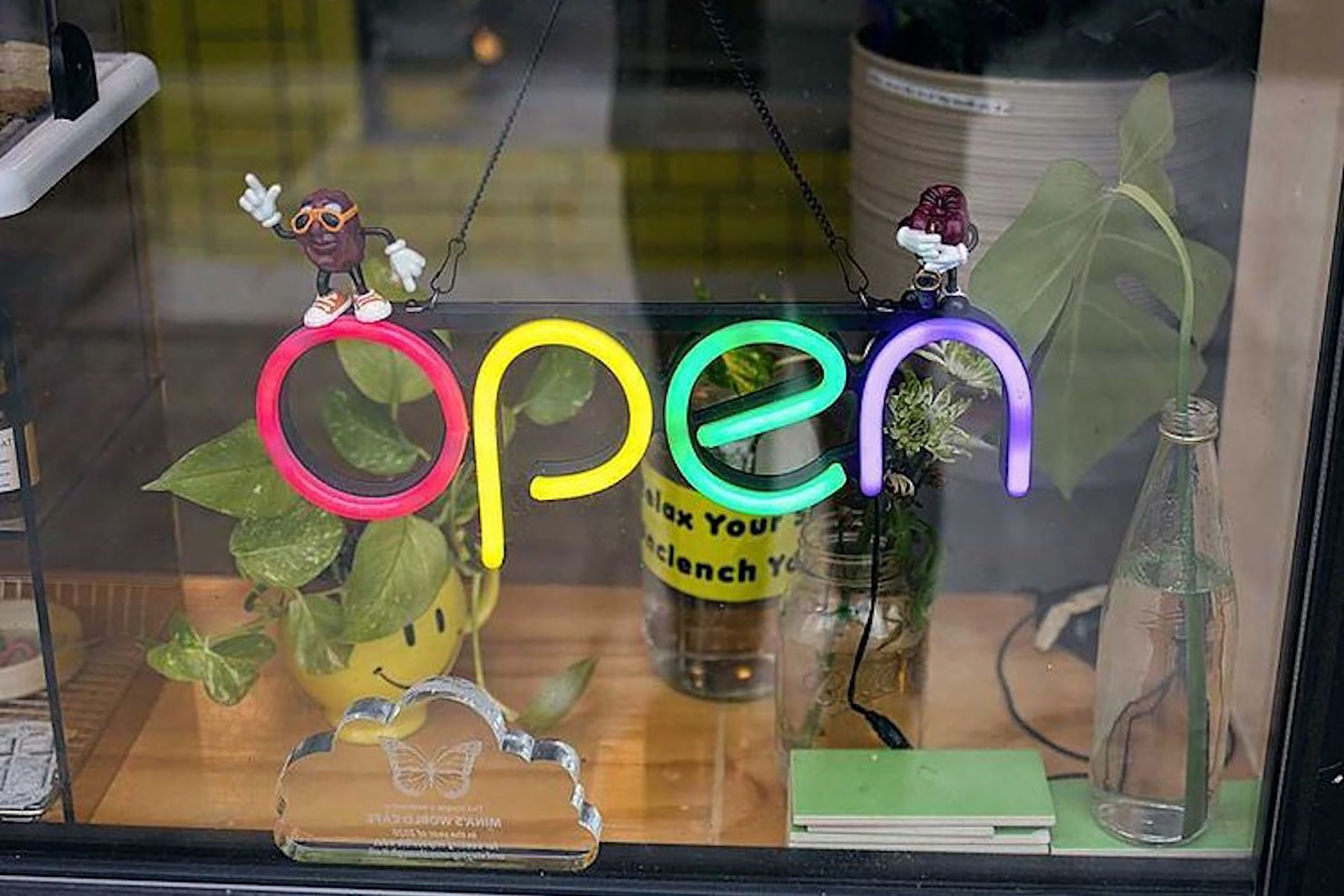Sprudge.com co-founder Zachary Carlsen is in Costa Rica all week long, embedded in the Cafe Imports Origin Trip. Follow along with more of his exploits here.
From San Jose, it’s about two hours to Tarrazu, and to get there you drive along the Pan-American Highway, or the Costa Rica 2 as it’s known here. You have to traverse the Cerro De La Muerte, or the “Hill of Death”, rising up to 4800 meters. The weather that high is often foggy, raining, and the temperature drops to a Costa Rican chill of 40 degrees. This region feels just like the Pacific Northwest, which makes it a perfect place for a coffee bar.
That cafe bar is the Mutude Cafe Tarrazu Boutique, located at Kilometer Marker 50 (they’re still working out a Facebook page). The cafe is brand new, and in fact, is opening on the day of this feature being published. Mutude combines the efforts of six families – all micromill operators and producers in the Tarrazu region.
Cafe Imports took the seven barista champions to Mutude’s “soft opening”, with members of the families from each micro-mill present. The baristas pulled shots of espresso, made cappuccinos, and mugged for the prying eye of my camera lense.
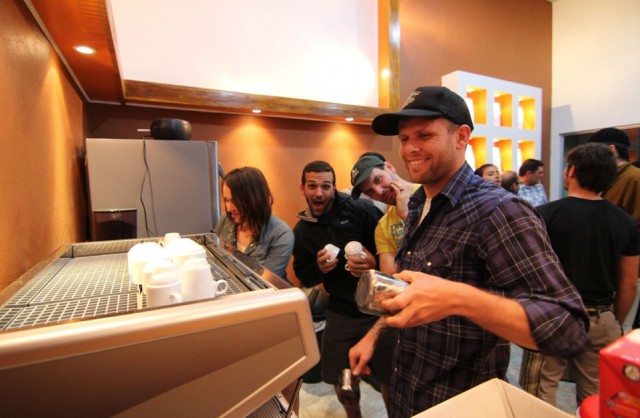
The word “Mutude” means “the best”, and it’s a Ngöbe word. The Ngöbe are an indigenous peoples living in Western Panama, and they populate Tarrazu between late October and early March. “Ngöbe are some of the best pickers,” Dayanna Meza tells me.
Ms. Meza, 20, is one of the owners of Mutude, and wanted to open “a warm place on a cold mountain.” The cafe is clearly her baby; she has that proud cafe owner glow about her, which reads the same in any language, in any place on earth. Her brother, Javier Meza, 24, designed the space. He’s finishing his last year of architecture school. Their family owns micromill La Cabaña, and have been growing coffee for over sixty years. Six years ago they built out their micromill.
Other micromills involved include Monte Copey, Undecaf, and Puente Tarrazu. You’ve heard of growing cooperatives? This is like a producer’s cooperative cafe.
The cafe’s atmosphere is gorgeous and inviting. Luis Roberto, or “Luirro”, is the resident barista, and works behind the bar with a Nuova Simonelli Appia. The shop will brew and sell six different coffees from six different micro-mills, roasted nearby.
In a quiet moment, Dayanna turned to USBC Champion Katie Carguilo and asks how the espresso tastes. “The espresso tastes like cherry and has a voluptuous body,” Katie tells Dayanna, “with a lotta crema and a roasty finish.”
Right now, the local roaster has only one roast profile – dark. This is common in Costa Rica as much as it’s common in the United States, or Europe Dayanna tells me the next step is developing roast profiles for the individual coffees.
There’s an vacant space next door, which Javier tells me will be a fruit stand, specializing in local fruits that grow nearby.
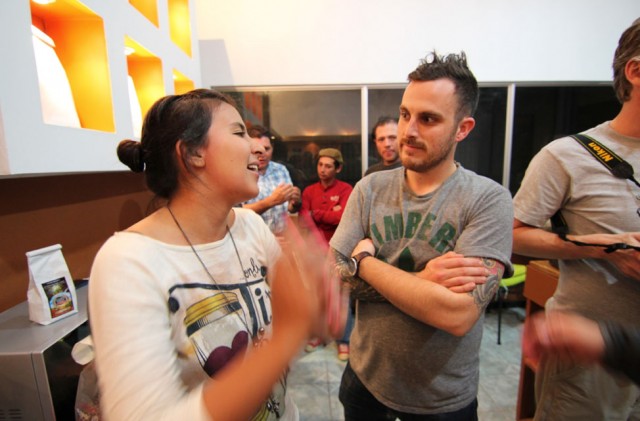
Cafes, or cafeterias as they’re called in CR, serving high quality coffees from micromills are a growing trend. Cafeteria Don Mayo, near the airport in San Jose, opened eight months ago. Costa Rica barista champion Auxiliadora Bonilla serves coffee there. Juan Ramon Alavardo recently opened Cafe Brumas Del Zurqui. Both of their mills are staples at outlets like Stumptown Coffee Roasters, and opening their own mills in Costa Rica is a pretty exciting progression for specialty coffee in Costa Rica as a whole.
In a country that grows some of the finest coffees in Central America, the vast majority of those coffees are exported; this is true almost everywhere in the coffee growing world, and is something I’ve personally observed at mills in Africa and Latin America. Coffee is a curious product in that sense – if you compare it to, oh, let’s rattle off a list here, say olive oil, or wine, or Scotch, or tea, or balsamic vinegar, the cultures that grow and produce those products quite actively self-consume the best stuff for themselves. You want the best Sicilian wine, or olive oil? Go to Sicily. You want to find weird, old, unique Scotch? Go to Scotland, where they’re hoarding it all.
Coffee isn’t like that, but maybe that’s starting to change. Consecutive World Barista Champions from Latin America seem to say so, and excellent new cafes like Mutude are a step in the same direction.
“It’s not often you get seven barista champions in a cafeteria. We’re excited you’re all here,” Dayanna told the barista champions. Lorenzo Perkins spoke up, “We’re excited you’re here!”
Mutude Cafe Tarrazu Boutique is located at Kilometer Marker 50, in the Tarrazu region of Costa Rica.




